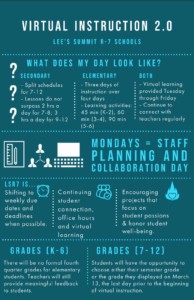How Michigan CoOp Connects Leaders to Improve Education

By Marsha Myles Bahra
The Michigan CoOp is a network of school districts that are early adopters of successful, efficient and effective learning models. Districts leverage each other’s strengths to create new opportunities for student learning and engagement. Cooperation and sharing of resources between districts allows each district to successfully offer their own unique program options for their students. Through collaboration, the MiCoOp can offer initiatives that districts could not accomplish on their own. It is a group of districts with leadership on all levels throughout each district, whose leaders are known widely as thought leaders, change agent leaders, transformational leaders, innovative leaders, and leaders who do what is best for students–not just talk about it.
At the foundation of our approach are the following beliefs:
- Students learning is what’s essential; not where, when or how they learn.
- Students are unique and are entitled to their own individual learning plan.
- Students need/want a menu of synchronous and asynchronous options that span brick-and-mortar, online and community involvement.
- True cooperation (vs. competition) benefits districts, students and teachers.
The Michigan CoOp originated about 10 years ago from a need that I observed with forward-thinking, visionary, risk-taking superintendents. I felt that it would be helpful and energizing if the Superintendents (there were six in the original group) had like-minded individuals to talk with and with whom to share successes and lessons learned. Initially, the Michigan CoOp meetings were only with the six superintendents, but, seeing the benefits of the cooperation, the group expanded early on to include virtual school leaders, tech directors, teachers, counselors, and others who also were seeking fellow “pioneers” with whom they could discuss best practice.
The Michigan CoOp quickly gained the reputation and respect of the Michigan Department of Education and were the first and only districts to be granted the initial K-5 Seat Time Waivers. The six districts also gained the attention of vendors who wanted to align with districts that were out in front of the curve, creating choices and options for students in all settings.
Under the leadership of myself and Lisa Sitkins, President and CEO of EdTech Specialists, (both of us are former Michigan teachers), the MiCoOp has become a recognized entity throughout Michigan (and beyond) as a change agent and leader in education transformation. Some of the goals of the Michigan CoOp include:
- Providing the opportunity for members to benefit from each other’s thought processes, best practices, and meaningful, energizing conversations.
- Sharing and growing networking opportunities globally with innovators who will help to guide and shape Michigan CoOp initiatives.
- Advocate for personalization of student learning at the state level.
- Work toward competency models of education
- Engage with national leaders in developing alternative, authentic, performance-based assessments
- Work on closing achievement gap
Because our districts span the entire state of Michigan, there can be a distance of 600 miles from one district to another. Realizing that face-to-face is so very important in sharing with one another, we come together twice a year, once in August and once in January, in a central location where all districts can join in. The Summer and Winter Conferences run for two days, and include time in whole group and breakout sessions. We also ensure plenty of time to network and build relationships, which has proven to be a valuable way to build out members’ PLNs.
We have monthly calls that are very popular as individuals and districts have the opportunity to share what they are doing, best practices, things that they would do differently, questions for each other and the Michigan Department of Education (MDE), etc. For example, the MiCoOp recently had a call relating to the changes in sections of the Pupil Accounting Manual. We compiled their questions after the call, submitted them to MDE, and received written responses to help clarify the changes. We also have national leaders on our calls who talk with us about the topics that include Competency-Based Education, Personalization, and the PACE initiative in New Hampshire, to name a few.
The greatest value in the MiCoOp is the network of individuals who model strong leadership throughout Michigan. The interactions are amazing. This group has become a close-knit group who keep in touch regularly, not just through the MiCoOp facilitated opportunities.
You might also be interested in looking through the Competency-Based Education Webinar/Podcasts that we put together that include webinars/podcasts by some of the MiCoOp districts. These webinars and podcasts have gained recognition as being a collection of the leaders in CBE, Personalization and Performance-Based Assessment.
In the coming weeks, I’ll be sharing a few examples of the good work being done by MiCoOp members, in the hopes of encouraging districts in other states to seek new ways to collaborate. Some of the highlights will include personalization in early childhood education, business partnerships, personalized learning in traditional structures and more, so stay tuned!
For more, see:
- The New Work of Network Leadership
- Dynamic Networks Focus on Learning Quickly
- El Paso and New Tech Network: District Transformation in High Gear
Marsha Myles Bahra is President and CEO of EdTech Specialists, LLC and the founder and co-facilitator of the Michigan CoOp. Connect with Marsha on Twitter: @EdTechMI
Stay in-the-know with all things EdTech and innovations in learning by signing up to receive the weekly Smart Update.




0 Comments
Leave a Comment
Your email address will not be published. All fields are required.